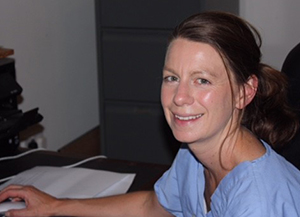-
-
- Council Members
- Role of Council Members
- Council meetings
- Council elections
- Previous election results
- Dr Louise Allum
- Dr Sam Bescoby
- Dr Andrew Clemence
- Dr Tshidi Gardiner
- Dr Reginald Godwin
- Paddy Gordon
- Dr Danielle Greenberg
- Dr Gerard Henry
- Dr Richard Hillman
- Dr Benjamin Kennedy
- Dr Tom Lonsdale
- Dr Darren Partridge
- Martin Peaty
- Alison Price
- Dr Peter Robinson
- Dr Jennifer Simmons
- Dr Sadie Spencer
- Dr Mary Thomas
- William Wilkinson
- Dr Lara Wilson
- Past-Presidents
-
-
-
-
-
- About extra-mural studies (EMS)
- EMS requirements
- Information for vet students
- Information for EMS providers
- Information for vet schools
- Temporary EMS requirements
- Practice by students - regulations
- Health and safety on EMS placements
- EMS contacts and further guidance
- Extra-mural studies fit for the future
-
-
- Code of Professional Conduct for Veterinary Surgeons
- Code of Professional Conduct for Veterinary Nurses
- Contact the Advice Team
- XL Bully dog ban
- 'Under care' - guidance
- Advice on Schedule 3
- Controlled Drugs Guidance – A to Z
- Dealing with Difficult Situations webinar recordings
- FAQs – Common medicines pitfalls
- FAQs – Routine veterinary practice and clinical veterinary research
- FAQs – Advertising of practice names
- GDPR – RCVS information and Q&As
Taking part in the CPD pilot - focusing on what's most beneficial for me and my patients
Having graduated from the University of Liverpool in 2003, I've worked as a mixed animal veterinary surgeon both in the UK and New Zealand. I'm currently working in small animal general practice in Norfolk.

In 2018 I returned to clinical practice after two years out. Prior to leaving my job in small animal general practice I had constantly felt that I couldn’t keep up to date with, or be really good at, the many and varied areas of practice that we are expected to be confident in.
There is a huge choice of CPD out there but with our time and financial constraints, I found it quite overwhelming and slightly depressing trying to choose where to focus my efforts.
On returning to practice I took part in the RCVS pilot scheme for the new outcomes-based CPD model that encourages you to sit down and think about the areas of CPD that would have the most beneficial effect on the outcomes for your patients.
Following the planning phase, you are asked to reflect on the CPD and consider what you have learnt and how this will change what you do in your work. I was genuinely surprised by how useful I found this process of planning and reflecting.
I found that the planning aspect really focused my mind on what I could change and achieve rather than feeling swamped by all the areas I would like to improve in but realistically were unachievable.
I accepted that I couldn’t be brilliant at all aspects of general practice and instead focused my mind and energy on improving in areas that I had decoded would be most beneficial to me and my patients. I found that this made me feel much more positive and in control about my work.
The reflective aspect, although it takes time, encouraged me to focus on what I could take away from the CPD and use in my day-to-day work rather than feeling that it was just another webinar, of which I would forget the majority of the content within a week.
You are also encouraged to write down the main points you have learnt which I found formed a useful concise summary of the CPD if I needed to refer back to it in the future.
I have found reflection to be useful on a personal level, but also at a practice level we regularly meet to discuss and reflect on cases that have gone well or badly which is an important learning exercise for all involved.
Many people are concerned about the extra stress and time pressure that this model of CPD will add to their lives. Yes, it takes more time to complete the records and sometimes I found it hard to have to go through the process each time I listened to a podcast or watched a webinar.
However, I would argue that the benefits outweigh this. To anyone who is dubious about the changes in the way we are being asked to undertake and record our CPD I would suggest trying to put any pre-formed opinions aside and to give it a go with an open mind. You may be surprised!
Published on 3 January 2020